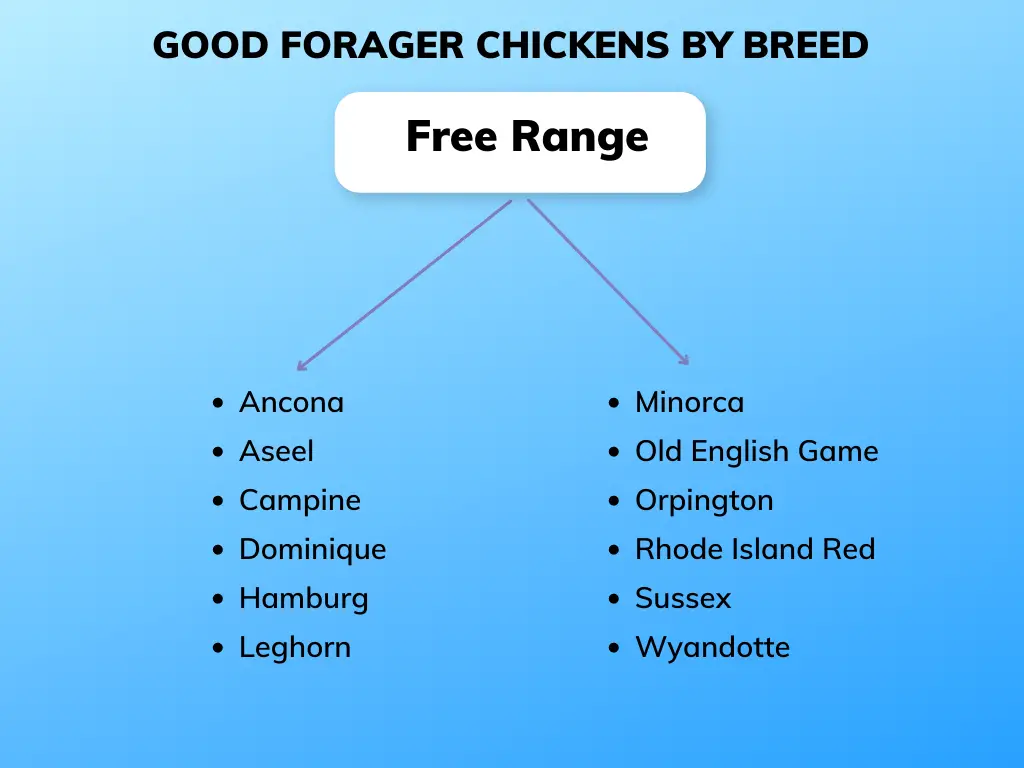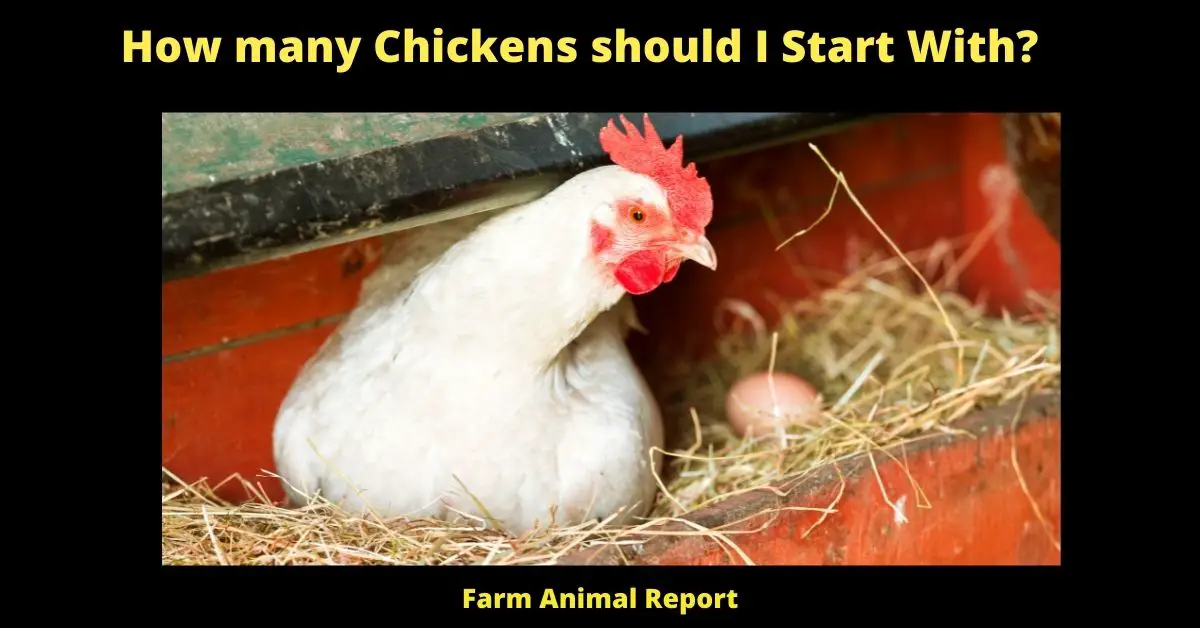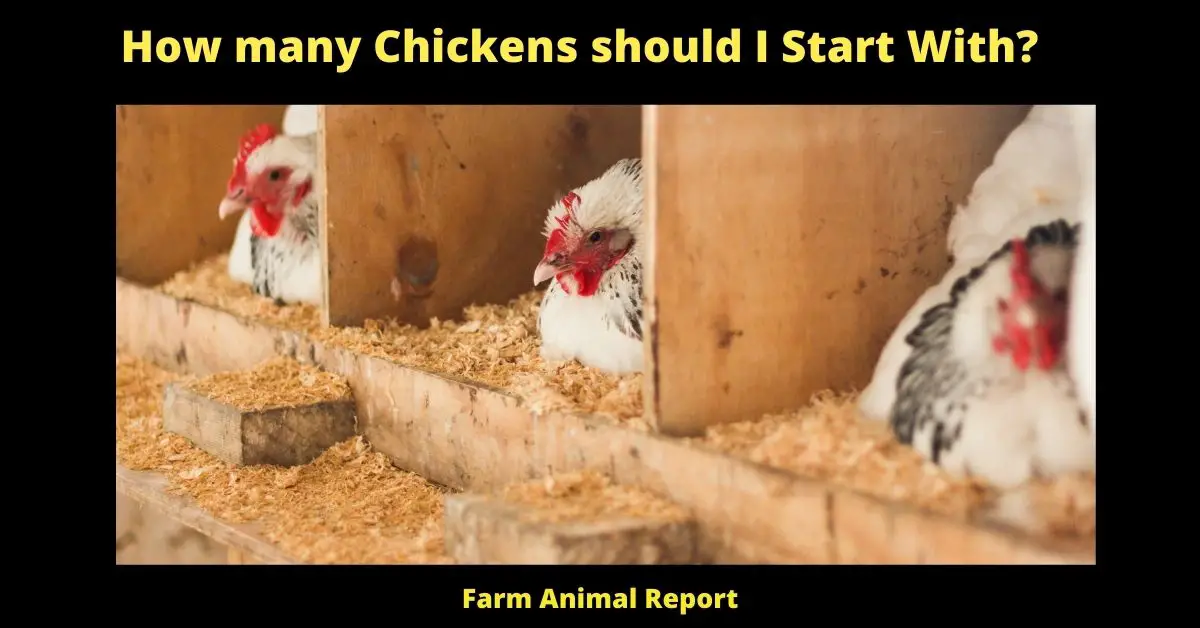Flock size matters when it comes to chickens. The best way is no fewer than three, but if you have room for five or six then that’s even better! In order to get a dozen eggs from them every day (which will make your morning meal!), collect about twelve in total
How many Chickens should I Start With?
When people are starting out in the backyard chicken world, they often ask “How many chickens should I start with?” The answer to this question is different for everyone. There are a lot of factors that go into determining how many chickens you will need. For example, if you want eggs and meat then more than one rooster will be needed per flock; while if all you want is fresh organic eggs then one rooster and around 12 hens would do just fine. In this article, we’ll discuss some of the things that might determine how many birds you should get started with!
Jump To 12 Ways to Make Money by Chicken Farming **CHARTS**
Best Chickens for beginners are:
Silkies: These chickens are known for being gentle and docile, making them a great choice for first-time chicken owners. They’re also relatively small, so they don’t require a lot of space.
Pullets: Pullets are young hens that have not yet started laying eggs. They’re a good choice for beginners because they’re relatively easy to care for and tend to be more tolerant of handling than adult hens.
Check Out Amazon for Educational Resources for Breeding Chickens
Barred Rocks: Barred Rocks are a popular breed of chicken that is known for their friendly personality and good egg production. They’re also hardy birds that can tolerate cold weather well.
Buff Orpingtons: Buff Orpingtons are a friendly breed of chicken that is known for its good egg production and docile personality. They’re also relatively large, so they require more space than some other breeds.

When deciding how many chickens to start with, it’s important to consider the size of your backyard or farm and the amount of space each bird will need. It’s also important to choose a breed that is compatible with your personality and lifestyle. If you’re not sure which breed is right for you, consult with your local poultry supplier or breeder.
How many Chickens should I start with?
Backyard Chickens?
Keeping chickens in your backyard is becoming a more popular trend. There are many reasons people choose to keep backyard chickens, such as getting fresh eggs daily, having composters on-site, or enjoying the companionship of poultry. If you’re thinking about joining the ranks of backyard chicken enthusiasts, one question you might be asking is how many chickens you should start with.
Here are some things to consider when deciding on the number of chickens you want.
The first thing people usually think about is how many eggs they will get every day. How many eggs a chicken lays depends on its breed and age, but typically backyard hens lay around two or three per week for most breeds. If you have just one hen, you will only get one egg a day. If you have four hens, you might get four eggs a day.
So, how many chickens should you start with? It depends on your needs and what you’re looking for in a flock of backyard birds. If you want enough eggs to last your family a few days each week, four hens should do the trick.

Other considerations are for your Backyard Chickens:
- Local Ordinances
- If you’re going to be keeping any type of livestock in your backyard, make sure it’s allowed. Some cities and towns have restrictions on what can be kept as a pet or for personal use, which will affect the number of chickens you should start with.
- To learn more about local ordinances where you live, contact your city government or check out the website of your local animal control agency.
- Space Requirements
- Chickens need around four square feet per bird to roam, so if you’re starting with a small backyard, you might want to consider fewer chickens.
- The amount of space also affects how much chicken feed you’ll need. If your hens have plenty of room to forage, they’ll eat less feed. However, if they’re confined to a small area, you’ll need to provide more food.
- Chicken Coop Requirements
- A chicken coop is an essential part of keeping backyard chickens. The size and type of coop will depend on the number of birds you have, so it’s important to do your research before getting chickens.
- Some coops can be made from materials you have around the house, but others can be quite expensive. The important thing is that the coop provides protection from predators and weather conditions.
- Roosters can be loud and annoying if you have close neighbors, so it’s a good idea to keep fewer roosters if you know the sound will bother people.
- Predators such as hawks, coyotes, dogs, cats, raccoons, and wolves can also be a problem if you live in the country or have no neighbors close by. Make sure your coop is secure to keep these predators out.
Best Chickens for Eggs?
The best egg-laying breeds of chickens are listed below. If you’re starting with a small flock, you might want to choose one of these breeds.
· Rhode Island Reds
· Plymouth Rocks
· Orpingtons
· Sussexes
If you have the room, another option is to get a mix of different breeds. This will give you a variety of eggs – also a mix can give you different colors of eggs
Chicken Breeds that produce different colors of eggs are:
Ameraucana (blue eggs), Araucana (green eggs), Booted Bantam (black eggs), Buff Orpington (light brown eggs), Catalina (dark olive green eggs) Dark Brahma (chocolate brown eggs), and many more.
How Much Space do I need?
Another thing to consider is how much space your chickens will need. Chickens should have around two square feet of space each, and they like to roost in trees or perches at night. so if you’re limited on space, you might want to consider fewer chickens.
Chickens also need a coop and yard in which to roam during the day. The larger your yard, the more chickens you can have. If you live in an urban area or don’t have a lot of space, you might want to start with just two or three chickens.
Chickens are social animals, so if you only want one chicken, for now, make sure it will be able to spend time out of its coop with people or other chickens. If your flock is too small and they don’t have enough companionship with each other or their owners, they might become unhappy and start pecking at each other.
How many Chickens Should I get?
You Might want to start off with 3-5 hens to begin and get some beginning learning. Once you start to get familiar with raising chickens, their daily needs, and housing requirements then you can add more hens to your flock. If you live in a rural area with plenty of space, then up to 20 chickens would be fine.
A good amount of Chickens for an urban environment would be around four hens due to less space. Check with local ordinances to see how many Chickens are allowed in your municipality.
When getting Chickens, always remember they need their own coop and yard to roam in during the day. The more space you can provide, the more chickens you can have!
How often do chickens lay eggs?
Depending on the breed a hen chicken will lay an egg almost every day or every other day.
A good rule of thumb is to have at least two chickens, so you always have a fresh egg. Three to four hens is the ideal number for most people. More than four and the flock will start competing for food and space. Less than three and you may not get enough eggs each week.
The ovulation cycle in a hen is about 25 hours.
A chicken can lay up to an egg a day (or Every other day) for about 12-13 years, but most hens only live around six years when in the wild or on factory farms so you should plan accordingly. If your chickens are free-range and have lots of space they may live longer than six years.
If you want eggs year round you will need to have a laying hen and a rooster. A hen can lay an egg even if she is not mated, but the eggs will be infertile.
A young pullet (female chicken less than one-year-old) usually starts laying at about six months of age.
Some breeds are better layers than others so do some research before you get your chickens.
The Ameraucana, a heritage breed, is an excellent layer and can lay up to 250 eggs a year.
How many Chickens do I need for a dozen eggs a week?
For your hens to produce 12 eggs a week you will need about four hens. However, if you find yourself needing more eggs than that, one option would be to keep a rooster with the flock. Roosters can sometimes help hens lay more often and in some cases double or triple egg production!

How many Chickens do I need for a family of 4?
For a family of 4, you should figure about 15-20 Chickens. This will give you enough eggs for your family, and also some leftovers to sell at the farmer’s market or to a local grocery store.
If you are only wanting a few eggs each week, then you could probably get away with just four Chickens. However, if you have a large family and want to use the eggs from your Chickens, then you may need a few more.
Final Thoughts – How many Chickens should I Start With?
In conclusion, when getting Chickens, always remember to provide them with their own coop and yard in which they can roam during the day. The more space you can provide, the more chickens you can have! Also, keep in mind that a hen chicken will lay an egg almost every day or every other day. So, if you want eggs year round you will need to have a laying hen and a rooster. A hen’s ovulation cycle is about 25 hours, so it’s not difficult for Chickens’ owners to get their own eggs each day!






